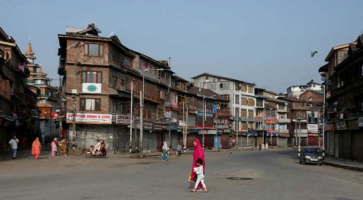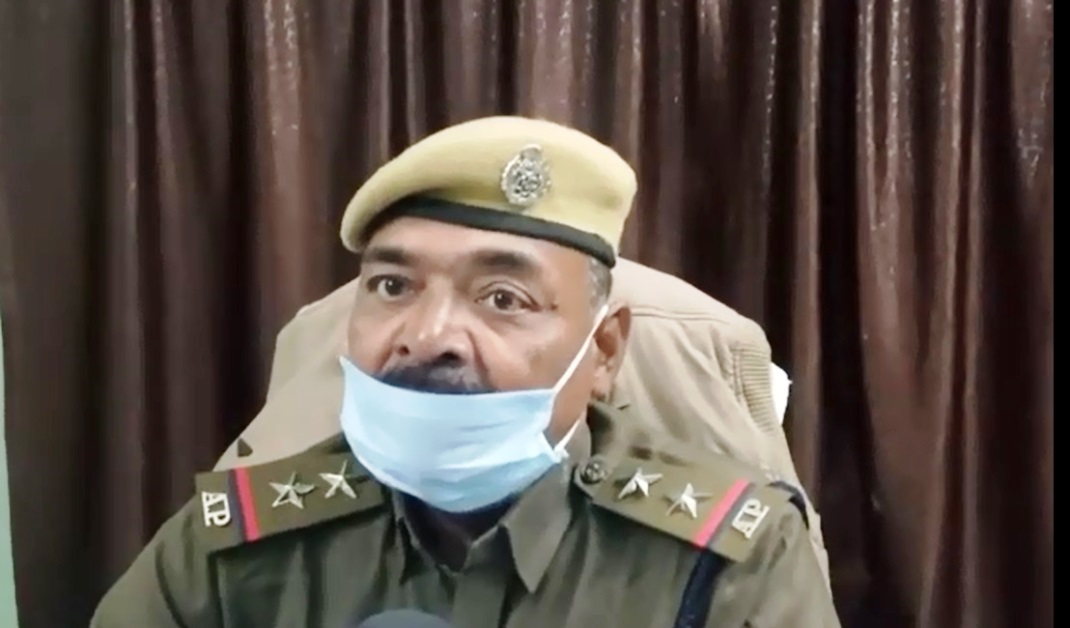In recent times, several Hindu organisations in Bangladesh have staged protests and conveyed their fears about the chain of events the CAB might unleash, to Indian diplomatic circles.

It appears major apprehensions about the NDA-proposed Citizenship Amendment Bill (CAB 2018) are not restricted to political parties in India alone. The proposed legislation might have a regional impact, beyond India’s borders. In recent times, several Hindu organisations in Bangladesh have staged protests and conveyed their fears about the chain of events the CAB might unleash, to Indian diplomatic circles.
Their main concern: the CAB, which assures protection in India to non-Muslim migrants fleeing from Pakistan, Bangladesh, Myanmar or Afghanistan, could catalyse Islamic extremists into launching a fresh armed anti-Hindu offensive, forcing them to leave bag and baggage. With only a handful of Buddhists and Christians living in Bangladesh, the Hindus would be hit the hardest. Estimated at under 150 million, just below 10 per cent of the Bangladeshi population, this group of people is currently the largest Hindu settlement outside India. Except for sketchy accounts in the Assam-based media, the unforeseen impact of the CAB in Bangladesh remains unreported in the mainstream Indian media.
Further, there is disquiet among the Muslim political establishment in Bangladesh as well, over an issue that by all accounts is very much India’s internal business. Influential Awami League (AL) leaders are deeply worried over India’s move. Traditionally, Hindus have been known to be a safe vote bank for the League, which stands as a symbol of secular politics in Bangladesh. On occasion, Bangladeshi Hindus have complained of official neglect and vulnerability on the law and order front. But Prime Minister Sheikh Hasina has also taken strong action against Muslim extremists who have been involved in anti- minority agitations or activities, from time to time. The contrast between the AL and the major opposition party Bangladesh National Party(BNP) could not be sharper in such matters.
Relations between the ruling AL leadership and India’s national parties, the Bharatiya Janata Party(BJP) and the Indian national Congress(INC) have been cordial over the years. Today, Bangladesh is India’s friendliest neighbor, after Bhutan, in South Asia. Its support to India in various diplomatic gatherings on the question of isolating Pakistan for its ‘export of terror’ policies , along with Afghanistan, has been a major comfort for Delhi. It remains to be seen whether the AL leadership will make use of back channel diplomacy to discuss its concerns informally with Indian policymakers.
League leaders fear that even without any fresh provocation, organisations like the Jamat-ul-Mujahideen of Bangladesh ((JMB) or the Jamaat-e-Islam, (both involved in carrying out subversive acts in S. Asia), the adoption of the CAB itself could encourage Hindus to leave Bangladesh and settle in India. This could happen gradually over the years or more rapidly. Either way, Bangladeshi interests would be hit.
The Hindu representation is significant in business and trade activities in Bangladesh. For the Hindus, the prospects of joining the stronger and larger Indian economy, with its vast market and remarkable growth potential, could prove to be too strong to ignore.
For Bangladesh, the loss would not be only economic. The immediate political consequence of any fresh Hindu diaspora would be an imminent weakening of the secular forces in Bangladesh and its existing political ethos that the League has built up so meticulously over the years. Dhaka’s moderately Islamist policies pursued over the years put Bangladesh in the company of enlightened countries like Malaysia and Indonesia, in bold contrast from Pakistan. That process could be hampered in a major way.
The CAB could also create problems for India in the long run. A Kolkata-based analyst agrees,saying , ‘A new Hindu exodus from Bangladesh would strengthen in a major way the Islamic fundamentalist forces, which are always seeking an opportunity to recapture power and almost certainly to realign with countries like Saudi Arabia and Pakistan. That cannot be good news for India.’
Leaders among the Hindus in Bangladesh, much reduced in numbers and social clout over the years, have no immediate intention of deserting ship, going by their recent pronouncements. Spokesmen of the Bangladesh National Hindu Jati Mahajot, and the Durgapuja Ayojak Samiti insist that Bangladesh remains their homeland and they have no intention of leaving for anywhere soon.
According to one account in the Assam-based media, however, some of them apprehend that they would become second class citizens in case they settled in India.
Some Hindu leaders do not deny the problems they have to face in Bangladesh as a minority community. But they prefer to stay and try to solve them from within the country. Switching nationalities is not seen as a solution. But much depends how Bangladeshi political parties, organisations, the administration and other official/semi-official entities measure up to the task of making the minorities feel more at home.
‘In the worst case scenario, if the Bangladeshi extremists eventually prevail against secularist parties and forces, there could very well be a Syria or Iraq-like situation, where the minorities were massacred. The fallout would burn India, too, as the violence would erupt at India’s doorstep,’ a Hindu community leader was quoted as saying.
His fears cannot be dismissed lightly. For all the efforts made by the ruling AL to maintain communal peace and harmony, the death toll among Hindus resulting from attacks launched by Islamic extremists has increased between 2016 and 2017. This, despite stringent action taken by the police and concerned authorities in some cases. Worse, regular intimidation, humiliation, forcible donations and other forms of harassment, too are common experience for Hindus, Buddhists and Christians in Bangladesh.
Other observers remain unsure of the long term regional implications of the CAB provisions in the South Asia region. They may lead to a stronger Hindu consolidation within India. On the other hand, it could be accompanied by a simultaneous reduction in India’s cultural and diplomatic presence in the immediate neighbourhood as more and more Hindus return to their roots, curtailing its strategic outreach.




